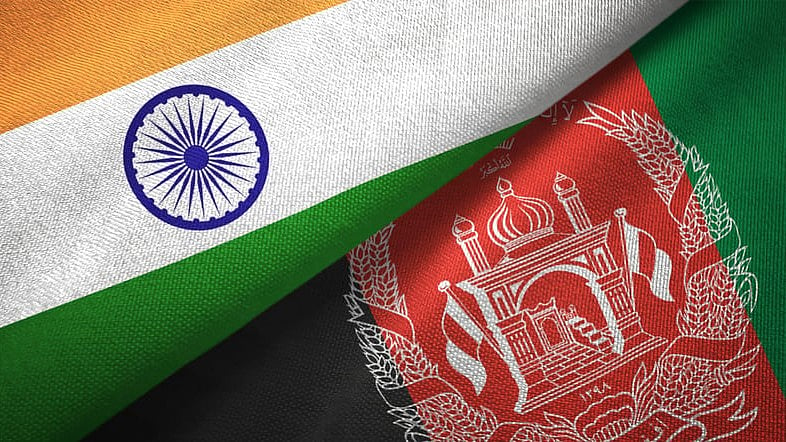
India, Afghanistan flags (Image for representation)
Credit: iStock Photo
New Delhi: The Union government headed by Prime Minister Narendra Modi may soon allow the Taliban regime in Kabul to appoint a representative to head the Embassy of Afghanistan in New Delhi – making another move to step up India’s engagement with the dispensation led by the Sunni Islamist militia in the conflict-ravaged country.
The representative appointed by the Taliban to head the Embassy of Afghanistan in New Delhi would not be accredited by the Government of India and would not be accorded the status of a diplomat. The embassy would also continue to officially remain the diplomatic mission of the erstwhile “Islamic Republic of Afghanistan”, which was replaced with the “Islamic Emirate of Afghanistan” as the Taliban returned to power after two decades. The mission would also not fly the emirate’s white flag, which had the Islamic oath Shahada written on it in black, sources in New Delhi said.
Though the Taliban has appointed representatives in Pakistan, Qatar and a few other countries, China was the first nation to grant the envoy of the Sunni Islamist militia’s government in Afghanistan the status of an ambassador. President Xi Jinping, himself, had on January 30 formally accepted the credentials of Bilal Karimi, whom the Taliban had appointed as the ambassador of Afghanistan to China.
New Delhi earlier allowed the Taliban to appoint an Afghan, who lived and studied in India, as the head of the consulate of Afghanistan in Mumbai.
New Delhi agreed to allow the Taliban to appoint a representative to head the Embassy of Afghanistan in the national capital of India after Foreign Secretary Vikram Misri had a meeting with Amir Khan Muttaqi, the acting foreign minister of the government led by the militia in Afghanistan. The meeting between Misri and Muttaqi was the highest-level public engagement New Delhi had in 25 years. The last one had taken place in December 1999, when then External Affairs Minister Jaswant Singh had a meeting with the Taliban government’s Foreign Minister Wakil Ahmed Muttawakil in Kandahar and handed over to him three terrorists to secure the release of the crew and the passengers of the hijacked Indian Airlines flight IC-814.
Unlike in 1996, New Delhi did not formally shut down its embassy in Kabul after the return of the Taliban to power on August 15, 2021. It evacuated its envoy and other diplomats from Afghanistan in August 2021 but sent back a “technical team” less than a year later to run its mission in Kabul and coordinate the delivery of humanitarian aid – food and medicines – from India.
New Delhi had several rounds of engagements with the leaders of the Taliban in the past two years, the latest being the meeting between a senior diplomat of India and Afghanistan’s “acting defence minister”, Mullah Muhammad Yaqoob, the son of militia’s late founder Mullah Muhammad Omar, on November 6.
India’s outreach to the Taliban is apparently aimed at stopping its strategic rivals Pakistan and China from turning the Sunni Islamist group’s return to power in Afghanistan into an advantage. The relations between Pakistan and Taliban-ruled Afghanistan, however, turned sour over the past two years. Islamabad blamed the Taliban regime in Kabul for the spurt in terrorist attacks in Pakistan.
